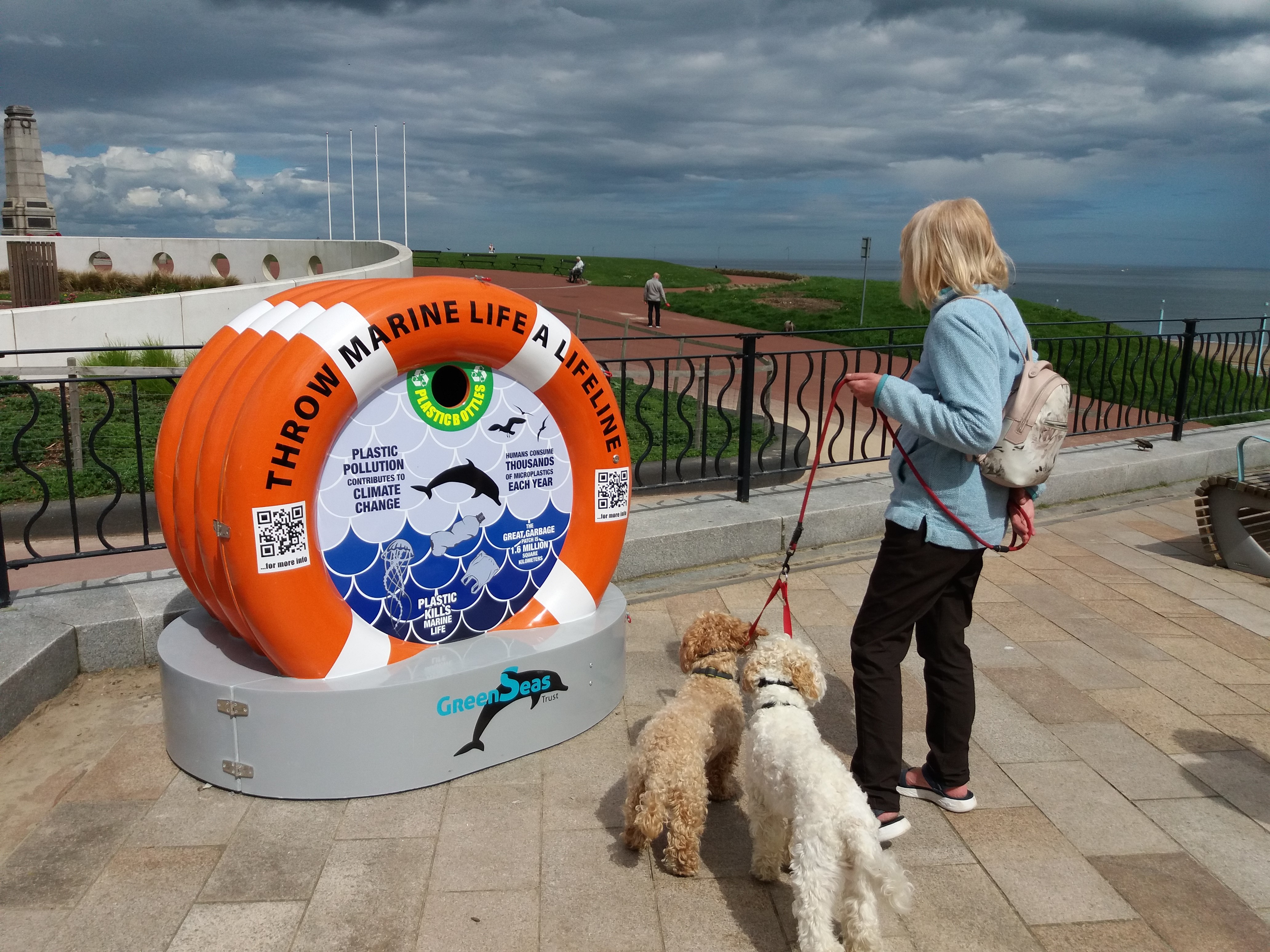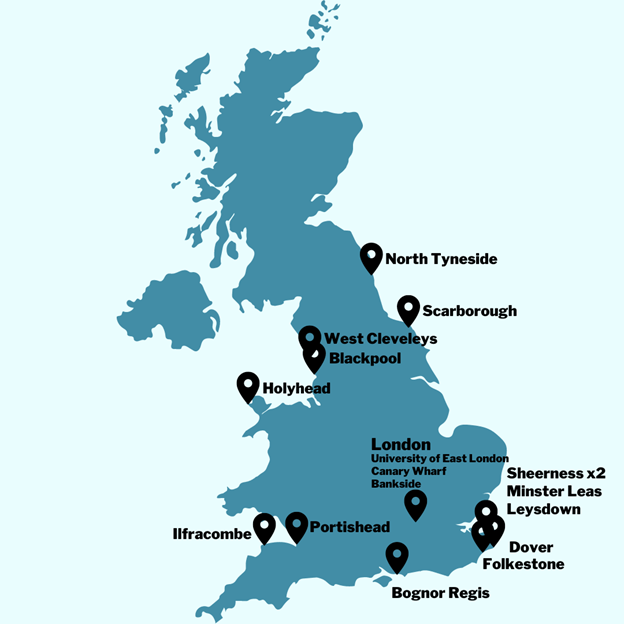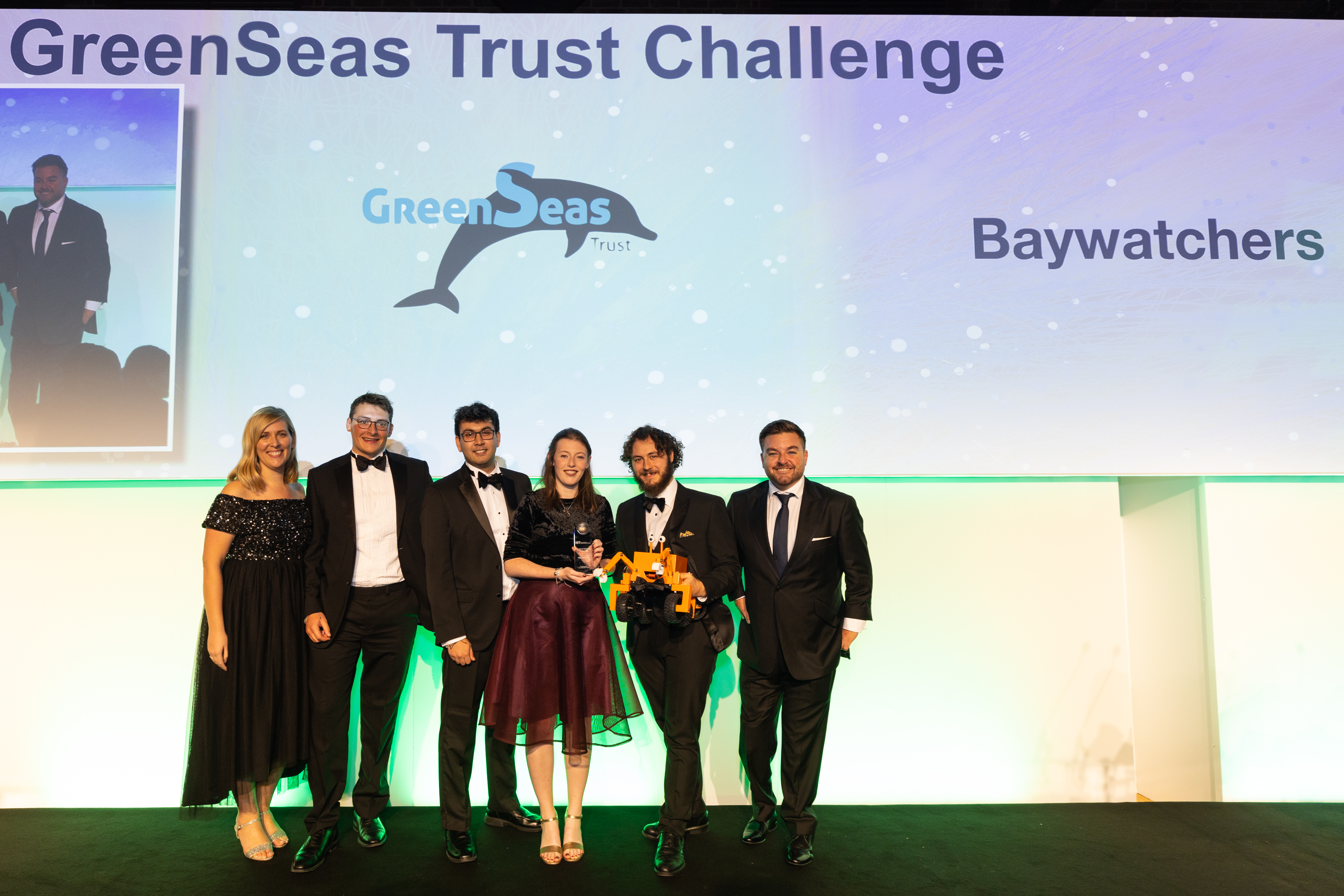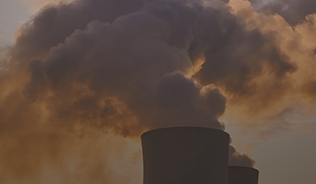Due to coverage in the media and increased public awareness over the last decade, it’s not surprising that most people have heard of the Great Pacific Garbage Patch. A part of the Pacific Ocean characterised by its vast accumulation of plastic waste, it covers an area three times the size of France, and is an estimated 1.6 million square kilometres in size. This is just one of several oceanic garbage patches that have accumulated in our seas.
Globally, humans dump 2.12 billion tons of waste each year, with less than 20% of it being recycled or composted. Plastic is the biggest offender and accounts for 80% of marine debris, with an estimated 12–14 million tonnes of it ending up in the oceans each year.
While over 90% of this waste ends up on the sea floor, recent estimates suggest 171 trillion pieces of plastic are currently floating in the upper waters of our seas. This floating waste is gathered into large patches by oceanic currents known as gyres. These circular oceanic currents gather up plastic and other waste into the stiller waters at their centre. There are five large oceanic gyres: two in the Pacific, two in the Atlantic and one in the Indian Ocean, all of which have their own floating garbage patches.
Floating on the surface, common finds include plastic bottles, bags, fishing gear, and food packaging. However, intermixed in the sub-surface water is a ‘peppery soup’ of microplastics that can extend deep into the water column. This soup-like consistency worsens over time as the larger items break down into smaller and smaller pieces. While this may not look too bad in areas on the surface, below the waves, it can be a very different story. The accumulation of so much plastic can be a physical barrier to the natural processes that occur in our oceans: it can reduce the mixing of surface and deep waters, which in turn decreases the ocean’s effectiveness in absorbing CO2 from the atmosphere. It also reduces the light entering the ocean, disrupting the effectiveness of the photosynthesis of marine plants like phytoplankton. This fundamentally affects the very basis of the marine food web and lowers the effectiveness of phytoplankton’s ability to absorb carbon and regulate our planet’s atmosphere.
Tackling the problem
The sheer scale of the problem may seem overwhelming. Dedicated groups and individuals removing litter from the sea and our environment is one solution, but the best way we can help as individuals is to limit our waste, both plastic and otherwise. We can also be sure to dispose of our waste responsibly, recycling wherever possible, and ensuring all domestic waste is stored in secure bins so it does not escape into the environment.
Researchers and various new technologies are also helping to find new ways to help clear this marine debris, such as sea surface clean-up machines. Another solution, of course, is to stop plastic from entering the sea in the first place: this is the solution that GreenSeas Trust pursues in all its projects. GreenSeas Trust is a marine conservation charity that was set up in 2003 to stop plastic from entering the sea. Its flagship project, the BinForGreenSeas, tackles beach and river littering. The eye-catching, lifebuoy-shaped bin was designed in 2019 by two students from the University of East London, with the brief of educating the public and cutting through consumer apathy towards plastic pollution. Standing at one and a half metres, the BinForGreenSeas is a recycling bin for Polyethylene Terephthalate (PET) plastic bottles. While practical, the main purpose of the bins' striking colours and inspiring graphics is to visually educate passers about marine plastics using the Nudging Strategy (a method used to change individual behaviour patterns). The bins help people make the connection between litter left on beaches or thrown in waterways, and the harmful effects this has on marine life and human health.

The BinForGreenSeas campaign also highlights the huge contribution of plastics pollution towards climate change. A lot of people are unaware that emissions from the production of plastics, and the smothering of the ocean floor by plastic pollution, are both huge contributors to the changes in climate we are now experiencing. The oceans are no longer able to act as an effective heat sink to absorb CO2 emissions, and now more than ever, people need to recycle more and rethink their single-use plastic consumption for the health of our planet.
The first BinForGreenSeas arrived on Blackpool Promenade in June 2019, and there are now 17 in different locations around the United Kingdom. By 2025, the Trust is aiming for the BinForGreenSeas to be placed along 12 more UK promenades. Each bin on average collects between 25-120 kg of PET plastic bottles each month, depending on footfall and location.

Reduce, reuse, recycle
Education is a key aspect of the aims and activities of GreenSeas Trust. The Trust often gives talks and workshops at schools, with the intention of inspiring awareness, and in the hope that strong environmental foundations are forged in these spaces.
These recent visits have included two primary schools, and the workshops have covered the 3 Rs – Reduce, Reuse, Recycle – and a project called Trash to Treasure, during which each child was asked to find a used plastic item from their home and make it into something new, as we worked to teach children about environmental issues caused by plastic, and how they can create a more positive future.
Education does not begin and end with children, however. The Trust has also worked with the shipping industry, creating a series of posters encouraging cruise ship crews to respect the pristine environments that their ships sail through. Seafarers don’t necessarily understand the problem of marine plastics, or how their own livelihoods and ocean health are intertwined. Since most crew members tend to come from coastal regions themselves, and have diets that include fish, reinforcing the connection between individual actions and the consequences these have on the oceans is important.
The seas have no boundaries; leaving a cigarette butt or a single piece of litter on a beach in the Atlantic Ocean can have repercussions on the other side of the world. Using seminars, posters and one-to-one engagement, the Trust focused on the lifecycle of plastics and marine debris on marine animals, the toxins they release as they break down, and the effect this has on the food chain and fish stock in their own coastal countries.
Butt Nothing!
Cigarette butts are the most discarded waste item worldwide, and they are also the most common form of litter in our seas. Butts, or filters, are made up of a compressed mesh of plastic fibres, and they do not naturally biodegrade.
Their small size and white colour commonly lead to marine life mistaking them for food, with fish and birds particularly vulnerable. When consumed, these non-digestible plastic butts can cause gastrointestinal blockages, eventually killing the animal. This problem can also be passed up the food chain, harming larger animals through plastic poisoning or by preventing their digestive systems from functioning normally.
Worse still, some of the chemicals that the filters are intended to catch leach into the surrounding water and affect marine life. These chemicals include cadmium, lead, and arsenic, all of which are particularly toxic: a study in 2011 by San Diego University suggests that just one smoked cigarette butt in a single litre of water is sufficient to kill both marine and freshwater fish.
Changing how people dispose of cigarettes is crucial, and the Trust continues to work on challenging the general perception of cigarette waste, highlighting the harm it can cause to our planet, with its Butt Nothing project. That work continues: in 2019, GreenSeas Trust partnered with the Institution of Engineering and Technology for their Global Challenge, with teams tasked with creating a remotely-controlled all-terrain machine to collect cigarette butts from the beach. The winning KRABB-E robot showed that small, innovative solutions can have a big impact. The Trust is currently working on a new initiative with beach hotels and resorts, to ensure guests are made aware that cigarette butt filters are made from a kind of plastic, to prevent them from burying cigarette butts in the sand.

All of these efforts go to show that making changes on an individual level, educating others, and campaigning for change in the places where it really matters have to be part of the global movement towards a less plastic-reliant, and less wasteful society. As Fazilette Khan, Founder and Trustee of GreenSeas Trust, has remarked: "When I first started GreenSeas Trust, I wondered if one person can actually make a difference. Today, I know it can. All it takes is innovative thinking and willingness to make a difference one plastic bottle at a time.”

About Fazilette Khan and GreenSeas Trust
The aim of GreenSeas Trust is to educate, promote and implement environmental programmes to eliminate plastics entering the seas and coastal areas. The Trust was established by Fazilette Khan in memory of her mother, Haida Khan. Fazilette qualified as a marine electronic engineer from the Merchant Navy College before becoming a Radio Officer, and went on to work for many prominent companies, including Stena Line, P&O Cruises, Cunard, Spliethoff, and Swire Pacific. Later, she became an Environmental Officer for Princess Cruises. She has received the Merchant Navy Medal for Services to the Marine Environment and the Points of Light Award from Prime Minister Rishi Sunak.
This blog has been published as part of our Turning the Tide: systems thinking for a sustainable ocean project. Join our dedicated mailing list to stay up to date on future project activities and hear about ways to collaborate.
The views expressed in blogs on our website are those of the authors and do not necessarily reflect IES views or policy.





